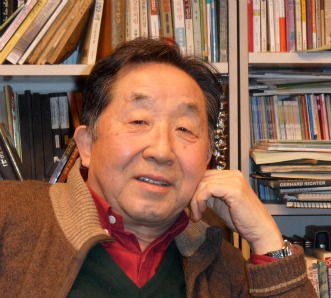By Jeongnam Kim
(Former Senior Presidential Secretary for Education·Culture·Society, World Korean News advisor)

The ocean going expansion and growth strategy of the Republic of Korea was influenced by our country's geopolitical situation. Under the East-West cold war structure and the confrontation of the North and South, our efforts to make advancement to the continent were blocked.
Fortunately we are open to the seas on three sides of our land, and the way to make advance via the ocean was not only possible, it was, in fact, the only path to a viable way of life.
It was Christianity that played an important role in the ocean going growth strategy. Furthermore, it played a vital role in transforming our way of life from the past feudal system to the modern system we now enjoy.
Ham Seok-hon, in his book "Korean History Seen in its Meaning," states that "the inroads of Christianity into our country was not at all an accident. There was something for it to do, just as the Confucianism was introduced to the land just before the beginning of the Age of the Nations of Power and Buddhism made inroads into the country at around the same time as the Age of Three States began. Each of these religions came into our land in preparation for the history that would come to be."
They say that the inroads of Christianity aimed to bring an end to the class system, flunkeyism, fatality, and superstitions. Some say that the purpose of its advancement was to help us achieve our independence from the Japanese colonial rule and our nation's modernization.
It is interesting that they don't see the introduction of Christianity as the encroachment of foreign culture and foreign elements, but they as the process and purpose of a self-creating endeavor for our own reformation.
In 1783, Yi Seung-hoon, aged 27, went to Beijing, in the state of Ching, with his father, a state minister, paying a state visit. In January of the next year, he was baptized by Father Gramont. He returned the next year and administered a mass without the presence of a father at the home of Kim Beom-wu, near the present Myungdong Cathedral in Seoul. This was the beginning of the Korean Catholic Church.
This was the commencement of a relationship between Christianity and Korea. In the meantime, the reformed church, which made entry into this land with the freedom of a new religion in 1876, more actively worked to help us establishing movements for independence, enlightenment, education and healthcare.
Just before and after Kim Il-sung began suppression of religion, the original Christian power of Korean Christianity came across the 38th parallel, giving vital energy to the rapid growth of Christianity in South Korea.
The growth and development of Korean Christianity was greatly indebted to Syngman Rhee, the first president of the republic.
He was baptized on Christmas in 1902 at Hansung Prison when he was twenty seven, and showed an outstanding activity for the mission work as a Christian. When the Constitutional Assembly was called in 1948, he was elected a chairman, and he began his official duty asking for a pastoral benediction.
That benediction was not in the order of the event. At the time, the benediction was given by Rev. Lee Yun-young, a member of the Constitutional Assembly. The curtain of the nation's Constitutional Assembly was raised with an earnest prayer.
Of a total of 135 minister-level government officials Syngman Rhee appointed during his tenure, 47.4 percent was Christians. He had Rev. Han Tai-young as a running mate for his third vice president, and he was the one who instituted a pastoral system in the military and the prisons.
According to a report published in 1993 by The Christian World, a professional religious magazine of the United States, Korea had 23 of the world's 50 largest churches. Beyond this quantitative outline, South Korea sent missionaries not only to the Arab countries that suppressed religion, but also India, China, Central Asian and even to North Korea.
The Republic of Korea is a country known for great missionary work, second only to the United States. A large portion of the Korean people living abroad are Christian. They are spread over a whopping 173 countries throughout the world.
They are playing a major role as an element in our nation's globalization. They are evenly spread around the globe insuch proportion that we can dream a Christian Pax Koreana.


